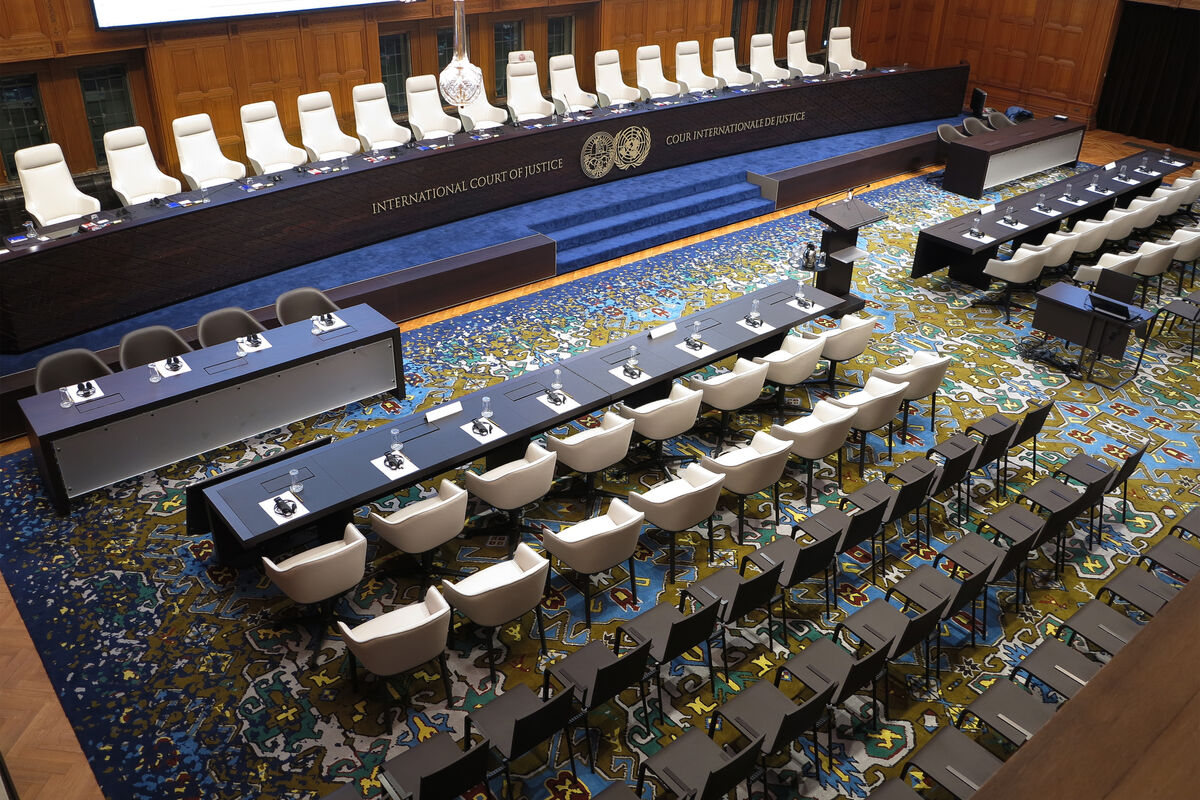The International Court of Justice (ICJ) is the principal judicial organ of the United Nations (UN). It is composed of 15 judges elected for nine years. Each judge is a different nationality to ensure impartiality (no bias). The Charter of the United Nations stipulates that the ICJ has two roles:
-
to settle, in accordance with international law, legal disputes submitted to it by states
-
to give advisory opinions on legal questions referred to it by authorized United Nations organs (General Assembly, Security Council, etc.).
International law combines the rules and norms that govern relations between states, individuals and organizations on the international level. These laws cover a wide range of issues such as the environment, trade, transport of goods and services, human rights, etc.
When two states disagree on an issue, they can appeal to the International Court of Justice. About 80% of the ICJ’s work involves settling disputes between states. The Court can only take on a case if the countries involved have freely agreed to come before it. The Court’s legal jurisdiction can cover any issue related to international law. However, most of the cases submitted to the Court are related to land borders, maritime delimitations or diplomatic protection.

Source : Ankor Light. "THE HAGUE, NETHERLANDS, 12 APRIL 2013 - The international Court of Justice is hearing the dispute between Thailand and Cambodia regarding the temple of Preah Vihear at the West cambodian border", Shutterstock, April 12, 2013.
In 2020, the International Court of Justice (ICJ) had still not delivered a judgment on several cases. Below are a few of them.
Guatemala and Belize wanted to finally put an end to their differences regarding their respective land and island territories and maritime spaces. They submitted their case to the ICJ in 2008.
In 2014, Somalia filed a complaint against Kenya concerning the delimitation of their maritime zone. The delimitation of the maritime zones of these two neighbouring countries extend into the Indian Ocean and overlap about 370 km off the coast. They would each like to know the exact maritime space they are allowed to use. Despite discussions between the two states, they have been unable to reach an agreement. They therefore decided to appeal to the ICJ.
Palestine appealed to the ICJ in 2018. Its case involved moving of the US embassy from Tel Aviv to Jerusalem. In 2017, the President of the United States recognized Jerusalem as the capital of Israel instead of Tel Aviv. Although Israel has proclaimed Jerusalem as its capital, much of the international community (the countries that dictate international policy) disputes this choice. Tel Aviv is considered the country’s diplomatic, economic and financial centre. This latest dispute is part of the very complex Israeli-Palestinian conflict.
All of the Court’s decisions are final and cannot be appealed, meaning that states cannot contest the judgements. By coming to the ICJ freely, countries agree to abide by the Court’s decisions, which must be implemented by all parties. If a country refuses to implement these decisions, the opposing country can resort to the Security Council, which can make recommendations or take action to enforce the verdict, such as economic and trade sanctions.
The International Court of Justice also plays an advisory role. It answers legal questions brought to it by the various UN organs (General Assembly, General Secretariat, Security Council and Economic and Social Council) and specialized institutions (WHO, UNESCO, etc.). The General Assembly makes more than half of all the advisory requests. One well-known opinion concerns Israel’s decision to build a security wall in territories occupied by Palestinians. This construction is a breach of international law because it violates the Palestinian people’s right to self-determination (sovereignty). The ICJ’s advisory opinions are not legally binding, but the Court’s legal and moral authority (rules of conduct deemed sound) gives them significant weight.
-
An institution is an organization governed by rules and laws that plays a specific role in society. Its role may be political, social, economic, religious, etc.
To better understand what an institution is, you can watch the video What is… an institution?.
-
Sovereignty is the absolute power of a state to govern itself by making its own laws and enforcing them within its territory. A sovereign state is independent, meaning that it cannot be controlled by any other state or institution.
To better understand what sovereignty is, you can watch the video Sovereignty and Interference.